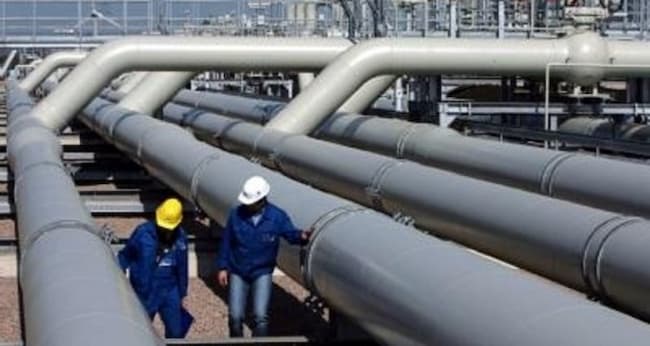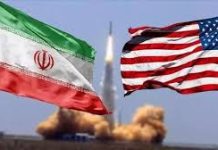The Federal Government, through the Nigerian National Petroleum Company Limited (NNPCL), has formalised a gas sales agreement with key international energy firm, Shell, TotalEnergies, and Agip for the $3.3 billion Brass Fertilizer & Petrochemical Company Limited project.
This accord was signed on Friday in Abuja to improve Nigeria’s effort to commercialize its extensive reserves and boost economic development. The Minister of State for Petroleum Resources, Ekperikpe Ekpo, described the agreement as a key step in transforming the country’s natural gas resources into industrial opportunities.
“This signing signifies a major leap in utilizing our vast gas reserves to stimulate industrialization and economic progress,” he said.
Ekpo emphasised the project’s potential to attract Foreign Direct Investment (FDI) and create thousands of job opportunities for Nigerians. The Brass Methanol Project, located on Brass Island in Bayelsa State, is set to receive a daily supply of 270 million standard cubic feet of gas, supporting the development of a large-scale methanol and fertilizer production facility.
The project’s completion is expected to generate over $1.5 billion annually through the export of fertilizers, petrochemicals, and other gas-based products. Moreover, it will significantly reduce Nigeria’s dependence on imported fertilizers by 30%, saving an estimated $200 million annually in foreign exchange.
In addition to its financial and economic benefits, the project aligns with Nigeria’s “Decade of Gas” initiative, aimed at making natural gas the cornerstone of the nation’s industrial growth and energy security.
Ambassador Nicholas Ella, Permanent Secretary of the Ministry of Petroleum Resources, highlighted that the Brass Methanol Project would contribute approximately $600 million annually to Nigeria’s GDP, potentially boosting related industries with an overall economic impact of $2 billion per year.
The initiative is also closely tied to Nigeria’s environmental goals, particularly the commitment to ending routine gas flaring by 2030. The project will create over 5,000 direct jobs and 35,000 indirect jobs, significantly improving the livelihoods of people in the Niger Delta region, a key gas-producing area.
Oritsemeyiwa Eyesan, NNPC’s Executive Vice President for Upstream, added that the agreement will facilitate the development of a 10,000-methanol plant, positioning Nigeria as a major player in the global methanol industry.
With the sales agreement now in place, the parties are poised to push forward to achieve financial close and commence construction, bringing the long-anticipated project closer to fruition. The Federal Government, through the Nigerian National Petroleum Company Limited (NNPCL), has formalised a gas sales agreement with key international energy firm, Shell, TotalEnergies, and Agip for the $3.3 billion Brass Fertilizer & Petrochemical Company Limited project.
This accord was signed on Friday in Abuja to improve Nigeria’s effort to commercialize its extensive reserves and boost economic development. The Minister of State for Petroleum Resources, Ekperikpe Ekpo, described the agreement as a key step in transforming the country’s natural gas resources into industrial opportunities.
“This signing signifies a major leap in utilizing our vast gas reserves to stimulate industrialization and economic progress,” he said.
Ekpo emphasised the project’s potential to attract Foreign Direct Investment (FDI) and create thousands of job opportunities for Nigerians. The Brass Methanol Project, located on Brass Island in Bayelsa State, is set to receive a daily supply of 270 million standard cubic feet of gas, supporting the development of a large-scale methanol and fertilizer production facility.
The project’s completion is expected to generate over $1.5 billion annually through the export of fertilizers, petrochemicals, and other gas-based products. Moreover, it will significantly reduce Nigeria’s dependence on imported fertilizers by 30%, saving an estimated $200 million annually in foreign exchange.
In addition to its financial and economic benefits, the project aligns with Nigeria’s “Decade of Gas” initiative, aimed at making natural gas the cornerstone of the nation’s industrial growth and energy security.
Ambassador Nicholas Ella, Permanent Secretary of the Ministry of Petroleum Resources, highlighted that the Brass Methanol Project would contribute approximately $600 million annually to Nigeria’s GDP, potentially boosting related industries with an overall economic impact of $2 billion per year.
The initiative is also closely tied to Nigeria’s environmental goals, particularly the commitment to ending routine gas flaring by 2030. The project will create over 5,000 direct jobs and 35,000 indirect jobs, significantly improving the livelihoods of people in the Niger Delta region, a key gas-producing area.
Oritsemeyiwa Eyesan, NNPC’s Executive Vice President for Upstream, added that the agreement will facilitate the development of a 10,000-methanol plant, positioning Nigeria as a major player in the global methanol industry.
With the gas sales agreement now in place, the parties are poised to push forward to achieve financial close and commence construction, bringing the long-anticipated project closer to fruition.













